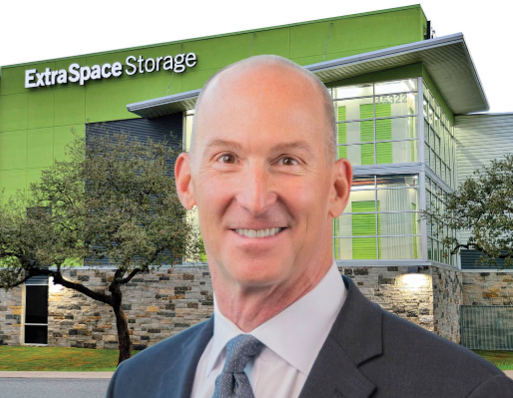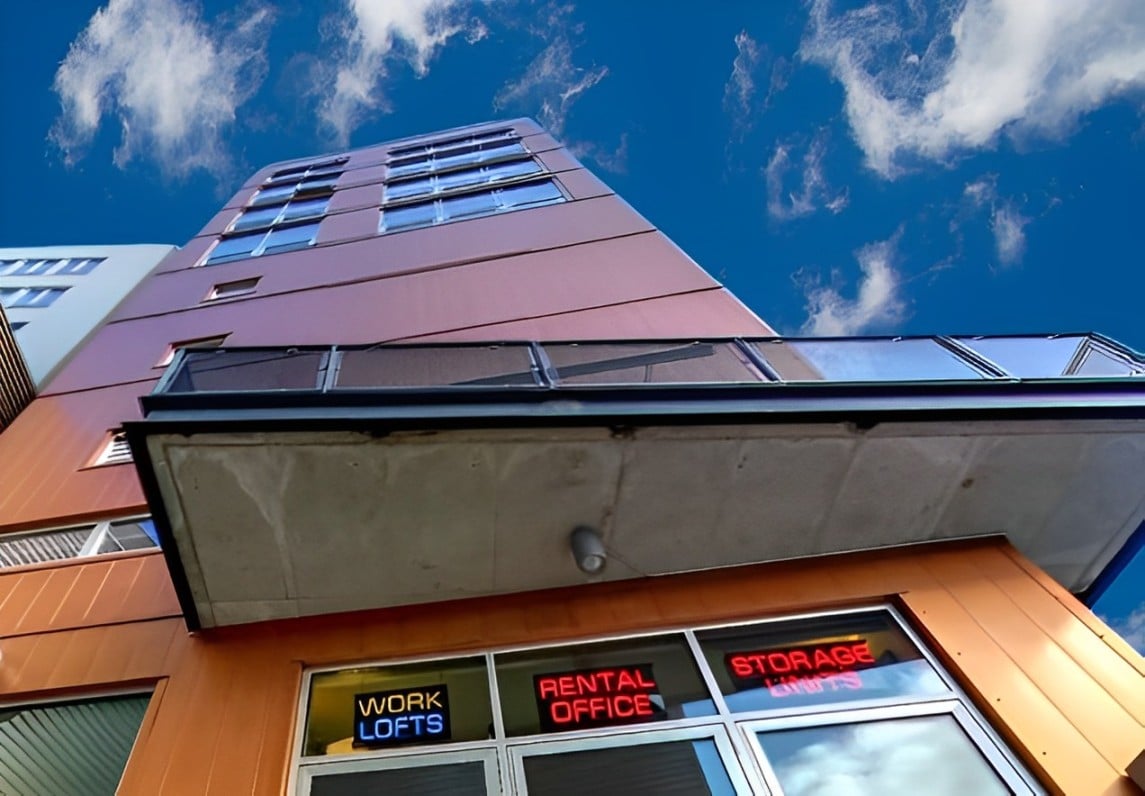Lance Watkins, CEO of storelocal
Over the past several years, consolidation has become somewhat of a buzzword among self-storage owners and operators. Speculations abound about how many established storage facilities the REITs will gobble up to obtain greater market share. What’s more, there are small operators who wonder if they can remain competitive against the industry’s giants.
Albeit at a more moderate pace than previously expected, industry consolidation is occurring. “Six or seven years ago, customer consolidation was happening at a disproportionate rate,” says Lance Watkins, CEO and board member of storelocal, “with REITs owning a larger base of online market share than real estate. Now REITs are growing at a fast rate through real estate property consolidation.”
Nevertheless, perhaps the self-storage industry could benefit from consolidation in the form of brand recognition. “There’s room for 10 significant brands in the industry,” he says, noting that, according to results of surveys he’s conducted, the three most recognized storage companies on a global basis are Public Storage, U-Haul, and PODS. Of course, market-specific research produces different results. For instance, residents of Manhattan are familiar with Manhattan Mini Storage.
“The problem is that storage isn’t used frequently enough to generate brand recognition,” says Watkins, who provides laundry detergent as an example of brand awareness. People use it frequently enough that a specific brand comes to mind when they think of laundry detergent.
Moreover, Watkins estimates that it costs between $300 million and $500 million to establish a brand. “You can transfer a brand into a different industry easily though,” he says, “if it already has awareness. Amazon and Virgin are perfect examples of this. For instance, Virgin started with magazines and records, and has since entered into cellular, media, and airlines, to name a few. One of Amazon’s biggest plays now is data.”
Rival REITs Through Scale
Even though small storage operators may not have recognizable brands like Public Storage, U-Haul, and PODS, they can create efficiencies through economies of scale to become more competitive. “Economies of scale enable storage operators to compete at a higher level,” says Watkins. As an example, he states that, although Extra Space Storage doesn’t have top-of-mind awareness, its efficiencies from scale come into play for its success within its marketplaces.
This is one reason storelocal, a cooperative created by independent self-storage operators, was formed. Similar to buying in bulk, cooperatives like storelocal offer better prices for products and services. Lower operational costs are achieved through vendor partnerships as well as in-house product development.
According to Watkins, storelocal seeks input from its members to find solutions for storage business issues. “We look for a single solution,” he says, adding that cooperatives are very powerful and efficient, especially for small businesses. “Members can use the products and services they want, but have access to our competitive offerings. There is an increasing adoption rate among our members.”
Of course, the co-op’s objective is to find efficient solutions that bring the highest value to co-op members. And Watkins states that collaboration is key as members collectively solve issues. In fact, when a good solution to a problem is not available, the co-op members assemble to create one. “We can come up with better, smarter solutions together,” he says. “Storelocal doesn’t compete for anything. The goal is to make members more competitive through better solutions.”
Time To Integrate
Economies of scale can provide storage operators with access to more affordable and more advanced technologies as well, which is a definite boon in this day and age. “Customers expect a higher level of service and quickly judge a company based on their online experience,” says Watkins, who notes that the storage sector’s lack of integration is making the industry more complex.
“Managing all the systems is burdensome,” he says, adding that the customers are the ones who are ultimately shortchanged when doing business is complicated. “A high level of integration is needed; integration with the storage industry supply chain is absolutely key.”
Watkins blames the technological disconnect on the fragmentation of the self-storage industry. “About 76 percent of the industry is owned by mom-and-pop operators,” he says. “The rest are REITs and top operators, but our supply chains are equally fragmented. There are dozens and dozens of small suppliers in the chain, each managed without scale, and tailored to the needs of very few companies, and rarely operated by leadership with self-storage experience.”
He goes on to say that the time has come for the industry to pull together for the benefit of self-storage customers and operators alike. “The industry cannot even agree what a climate-controlled unit is called,” says Watkins. “Other real estate asset classes like multifamily and hospitality have set definitions of offerings and systems that work well together. This benefits everyone from customers, to property owners, to lenders.”
As Watkins sees it, the self-storage sector must be more open to technology in order to reach the level of unity other industries enjoy. “Understandably, some suppliers try to block competition, but the byproduct is lack of innovation, hurting storage customers and operators.”
He also points out that Public Storage and Extra Space Storage have had much success in this arena due to their in-house, proprietary platforms. Moreover, the REITs’ economies of scale enable them to spread out the platform costs over more facilities, thus reducing expenses while increasing profits. “The Big Five have scale, market share, and the benefits of large amounts of data they can utilize to make better decisions,” says Watkins. “The large REIT platforms add to their valuations on Wall Street.”
And, according to Watkins, this kind of high-level integration could be achieved through more robust APIs (Application Programming Interfaces). He notes that APIs allow the self-storage industry to streamline and automate processes, which leads to increased efficiency as well as increased profits.
“It all starts and ends with APIs,” says Watkins. “They are very powerful. APIs touch nearly every facet of the storage industry: marketing and call centers, facility gate access, legal notices, revenue management, analytics, collections, and storage auctions, to name just a few. Equally important, APIs allow storage companies to improve customer service and provide a more dynamic product.”
Data Dilemma
Speaking of APIs, they also provide storage companies with more data, which enables companies to make decisions based on real feedback from the market. Unfortunately, Watkins states that accessing this data is becoming a “big problem in the industry”.
As written in storelocal’s third installment of “Storage Talks” that discussed APIs: “Due to the fragmented nature of the storage industry, no single player will solve these infrastructure shortcomings. Instead, a multitude of vendors are necessary to deliver proper solutions. These vendors need consistent and dynamic API access and support in order to provide industry solutions. However, many of the industry’s property management software (PMS) companies currently have the power to grant or deny such API access to your data. The startling truth is that many of the PMS companies have the power to act as the industry’s data gate keepers, promoting or stifling innovation as they see fit.”
What’s more, the ability to access one’s data—that was painstakingly compiled—now comes at a price. “Vendors are taxing me to use my own data,” Watkins says, adding that this cost has been gradually rising over the past few years. “It’s begun affecting the bottom line.”
“If your PMS company can deny API access at their sole discretion, then they truly are the gatekeepers of your data,” he says. “They have the authority to deny API access to vendors with whom you’d like to work, and they decide who you can play with and what games you can play. This hinders your ability to explore new ideas and technologies to improve your business and increase profits because you are limited by whether (and how) your PMS company is willing to accommodate you. This stifles innovation and hurts your bottom line.”
Erica Shatzer is the editor of Mini-Storage Messenger, Self-Storage Now!, and Self-Storage Canada.
More Content
Popular Posts
The REITs new pricing strategy – lowering...
The self storage industry is in a precarious...
With the approval of both companies’...
Recent Posts
Owning or managing a self-storage facility...
Helen Keller is quoted as saying, “Alone we...
It’s often been said that “opportunity is...
There’s a saying in Florida that there are...
The landscape of the self-storage industry...
Last January, the prime interest rate was...
Many of us are seeking ways to bring in new...














